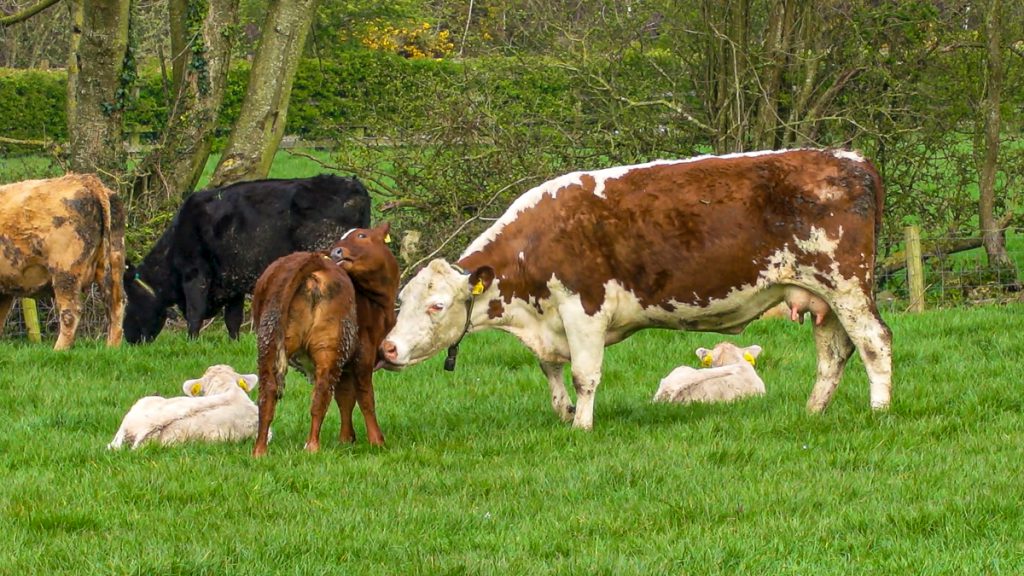Autumn is here and with its arrival will come the final push to get the new Common Agricultural Policy (CAP) arrangements over the line.
I am fully aware of the fact that Brussesls has sought to modify CAP in ways that make farm support more responsive to the climate change challenge that confronts us all.
But the even bigger picture that must be considered by Ireland and the rest of the EU, is that of securing the extra food the world will need over the decades, in a wholly sustainable manner.
CAP and the need for food supply
Today, the world’s population stands at around 6.5 billion people. By 2050 this figure will have risen to nine billion. That’s a lot of extra mouths to feed.
And Ireland must be allowed to avail of the opportunity to produce more food. As a country we are so well placed to help make this happen in ways that will not harm the environment or add to climate change pressures.
Let’s be honest about all of this, if we, in Ireland, do not contribute to the production debate, then countries like Brazil certainly will.
And such an eventuality would give great cause for concern when it comes to adapting the principles associated with the sustainable production of food.
Ireland and food production
Ireland has all the tools in the box to significantly increase food output. We have an almost perfect climate in which to grow crops and manage livestock.
Grass is out greatest asset. We constantly tell the world about our ability to produce milk, beef and lamb from a grazing platform.
But in truth, we are still playing at grassland farming. The difference in production output that can be achieved from experimental plots, relative to what happens on farm, is immense.
And there is every prospect that this gap can be narrowed significantly on the back of farmer education programmes and the implementation of new technologies. There is absolutely no requirement to increase the nutrient loading on our farms.
Cap on suckler cows?
Given this backdrop, it was so disappointing to hear that Minister for Agriculture, Charlie McConalogue, was even considering the introduction of a cap on suckler cow numbers. Such an approach makes no sense at all.

At one level, it jars totally with the need to maintain a sustainable farming base in our less favoured areas.
But it also begs the question – how does a restriction on suckler numbers complement McConalogue’s commitment to secure a grass-fed Protected Geographical Indication (PGI) for Irish beef?
Food Vision 2030
Meanwhile the government has just launched its ‘Food Vision 2030’ document. The headline figure here is a commitment to increase the value of Irish food output from €14 billion to €21 billion over the next decade.
But, of course, the reality is that we could reach this target on the back of moderate inflation levels, without producing an extra litre of milk or kg of beef.
In my opinion, Minister McConalogue must be brought to task in terms of his real plans for production agriculture over the next decade.
This will mean marrying the principles established by CAP and the Food Vision 2030 strategy.
But more importantly it will require the minister to come out and make patently clear to the country as a whole, his real plans where production agriculture is concerned.
In other words – is he up for a real push in output and, if so by how much?
Growth in agriculture?
In my opinion, it won’t take rocket scientists to work any of this out e.g. the sheep sector is primed for real growth.
Brexit has already stymied the UK as a supplier of lamb and sheepmeat to the EU. Ireland can easily step in and fill this gap.
The additional good news, where sheep are concerned, is that they have an almost zero carbon footprint, from a production point of view.
I have already touched on the potential that exists to significantly improve our grassland output. Also worth pointing out is the fact that the west of Ireland is currently ‘awash’ with rushes.
This is the end result of farmer dissatisfaction with their lot over many years. Decades of under investment has resulted in previously sustainable grassland areas being totally downgraded.
Reinstating even a proportion of this land on the back of drainage, liming and reseeding programmes, would help to boost Ireland’s food output in a significant manner while, at the same time, reinvigorating many rural areas.
Future for tillage
Ireland’s tillage sector is also primed for future development. A number of recent reports on the industry await a formal response from Minister McConalogue.

The year that’s in it has confirmed Irish tillage farmers’ ability to produce the highest cereal yields in Europe.
Let’s hope the minister has taken note of this fact and allows tillage farmers to invest in their futures accordingly.
Meanwhile, the new CAP measures must be agreed by the end of the current calendar year. The need the remove the proposed restriction on suckler numbers is an obvious priority.
But above all else the farming organisations must work with the government to ensure that Ireland’s genuine potential to significantly increase its food output is realised in full over the coming years.
